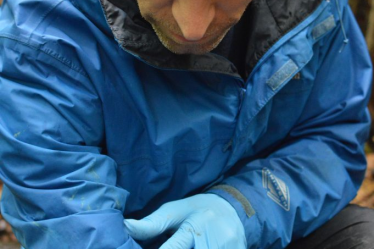Geoffrey Allen
Viewpoints Editor
That’s right! You read the title! Let’s talk about shit! I remember last year, two good friends of mine used to talk about it all the time in the toilet and I never got the appeal of it. But the other day I kinda did…if a Vox post on Instagram counts. You see, pooping is not just important for the sake of getting rid of human waste, nor is it just a social affair for two buddies in adjacent stalls to chat about what’s been going on in their life to pass time in the bathroom. Instead, it has become a way we fight off entire pandemics. This is because our waste helps detect traces of COVID-19 in our community. This strange, rancid and definitely stinky method of viral tracing has proven to be effective over the years and is finally getting the attention it deserves – including in our very own college spot here in Wooster, Ohio.
When analyzed, feces and urine are signifiers for an individual’s health. Perhaps we are all familiar with urine drug tests, but we never really knew why. This is because, due to human advances in genomic sequencing, scientists can decode what is found in waste. When we do our #1 or #2, our waste is distributed in wastewater and is taken to a treatment plant. Indeed, our sewage doesn’t just filter water in sewage systems. When collected at a treatment plant, samples are sent to environmental and public health laboratories for SARS-CoV-2 testing. Whether symptomatic or asymptomatic, people with traces of COVID-19 can shed a viral RNA in their feces. Once found, the data is sent to the Center for Disease Control and Prevention (CDC) on an online portal. The system then analyzes the data and reports results for use in their COVID-19 response. The results are also returned to the public through the CDC’s COVID Data Tracker so public health measures can be enacted.
This method of epidemiology has been proven easier for contact tracers to locate COVID-19 in communities compared to polymerase chain reaction (PCR) or rapid antigen tests. Not only is it used by the CDC, but 63 other countries, including Israel, where the method was first tested in 2013. Many researchers hope that wastewater has the potential to be a basic part of global public health infrastructure. The head of the public health research data firm Biobot sees wastewater surveillance as a solution to many urban challenges in society – and it already is! Here at Wooster, wastewater surveillance is used as a COVID-19 tracing method as a part of an Ohio Health Department initiative from the fall of 2020.
So even if you may have considered shelving a nice poop collection in your dorm, it may just be best to simply let shit be – in the toilet. It may not be the most conventional method for health safety and prevention, but it has been able to contain COVID-19 in our communities and can combat the global crises of the future. It’s important shit to know.

